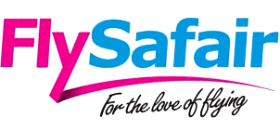 FlySafair Implements Lock-Out Amid Wage Talks, Eyes Operational Stability
FlySafair Implements Lock-Out Amid Wage Talks, Eyes Operational Stability
South Africa’s prominent low-cost carrier, FlySafair, has taken the bold step of instituting a lock-out of its cabin crew following a breakdown in wage negotiations with the South African Cabin Crew Association (SACCA). This decisive measure underscores the airline’s intent to manage the current industrial dispute proactively and avoid the operational disruptions that a strike could bring. The move comes as discussions continue under the guidance of the Commission for Conciliation, Mediation and Arbitration (CCMA), ensuring that dialogue remains open even as tensions rise.
The decision to enforce a lock-out was announced after both parties failed to reach an agreement on salary adjustments. FlySafair’s leadership maintains that this action is aimed at expediting the dispute’s resolution and safeguarding its flight schedules—a critical concern in a highly competitive and price-sensitive market. The airline’s management stresses that the lock-out is a temporary measure, designed to encourage a swift and constructive return to the negotiating table, rather than a long-term solution or punitive measure.
This development is being closely watched by industry professionals across sub-Saharan Africa, as it highlights the delicate balance between maintaining cost efficiency and meeting employee expectations in the aviation sector. Labour disputes such as this have the potential to impact not only flight operations, but also customer confidence and the broader reputation of airlines at a time when the industry is still recovering from pandemic-induced challenges.
Throughout the current standoff, FlySafair has reiterated its commitment to finding a fair and sustainable solution. The carrier has assured its clients and partners that it is taking all necessary steps to minimize any service disruptions and that safety remains its foremost priority. Operational teams are working to ensure that contingency plans are in place, with alternative arrangements being considered to protect the integrity of scheduled services.
The mediation process led by the CCMA reflects South Africa’s established mechanisms for resolving industrial disputes, offering a structured environment for both parties to present their cases and seek common ground. For African aviation stakeholders, this ongoing situation serves as a valuable case study in conflict management and the importance of robust industrial relations frameworks within the region’s growing airline sector.
FlySafair’s proactive approach comes at a time when labour relations are under renewed scrutiny across the industry. The evolving dynamics between airlines and their staff are prompting many carriers to revisit their human resources strategies, wage structures, and employee engagement practices. As competition intensifies and operational costs remain under pressure, the challenge for airlines is to strike a balance that supports both financial sustainability and workforce wellbeing.
For the African air transport community, the implications of this dispute extend beyond the immediate parties involved. The ability to manage industrial conflicts effectively is increasingly seen as a key differentiator in the market, with direct impacts on service reliability, passenger loyalty, and ultimately, financial performance. Airlines across the continent are paying close attention to how FlySafair navigates this period, with many likely to draw lessons that could inform their own approaches to labour relations and crisis management in the future.
As negotiations continue, the focus remains on achieving a resolution that addresses the concerns of both FlySafair and its cabin crew, while maintaining the operational stability that is essential for customer satisfaction and commercial success. The outcome of this dispute will not only shape the immediate future of the airline, but also offer important insights for the broader African aviation sector as it adapts to evolving workforce expectations and competitive pressures.
In a rapidly changing travel landscape, the ability to handle labour disputes with agility and transparency is becoming ever more critical. For industry professionals across the region, FlySafair’s experience reinforces the need for continuous dialogue, strong institutional support, and innovative solutions that keep pace with the shifting demands of the workforce and marketplace alike.
